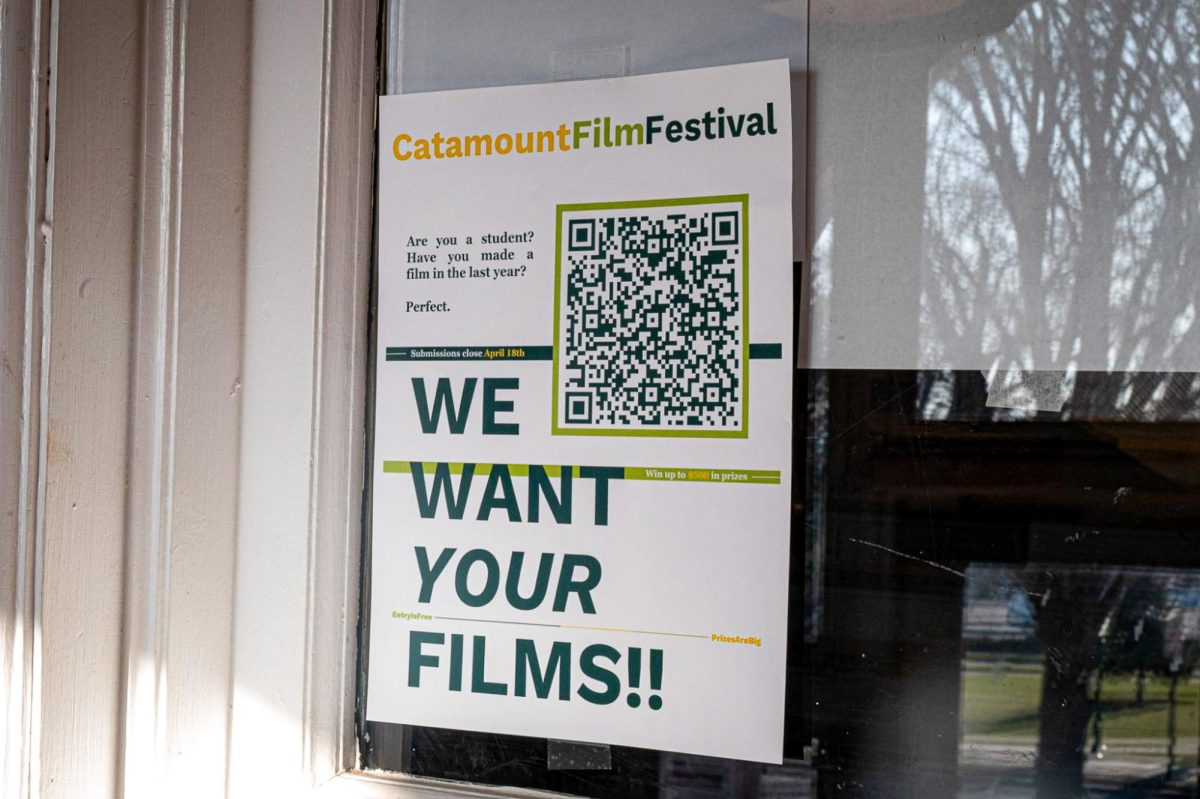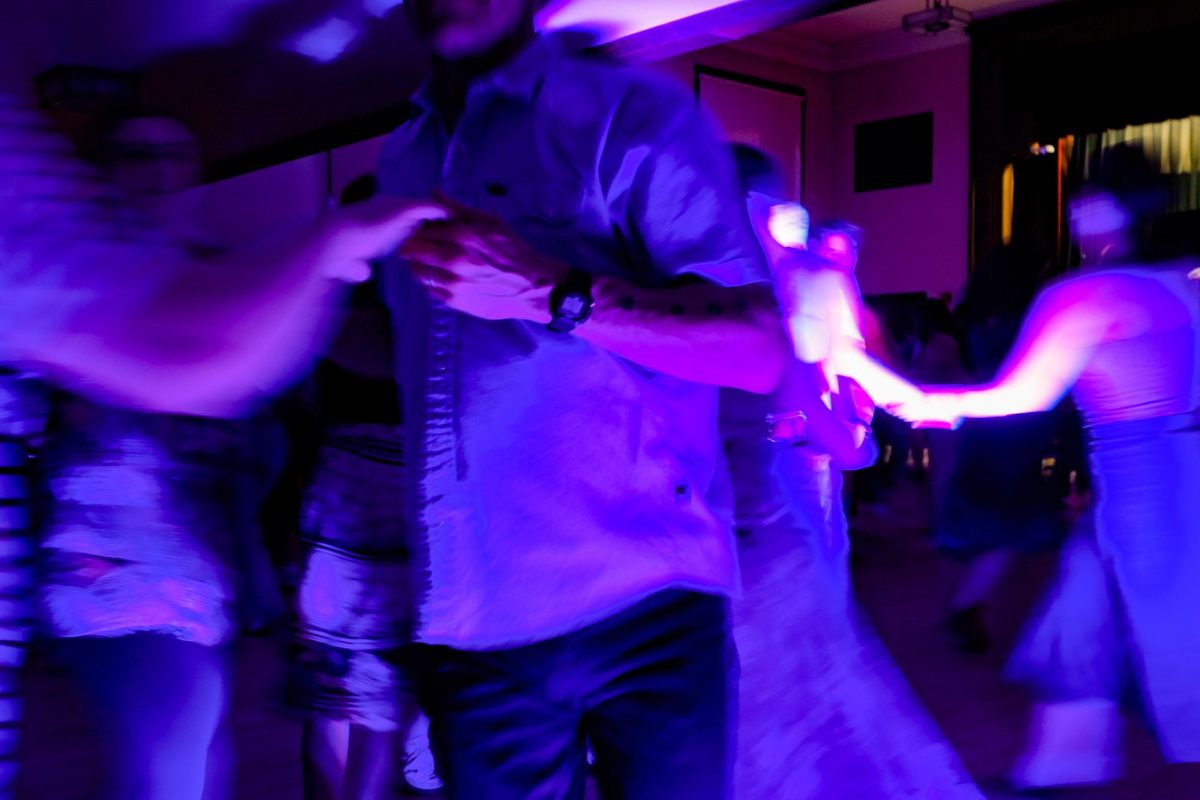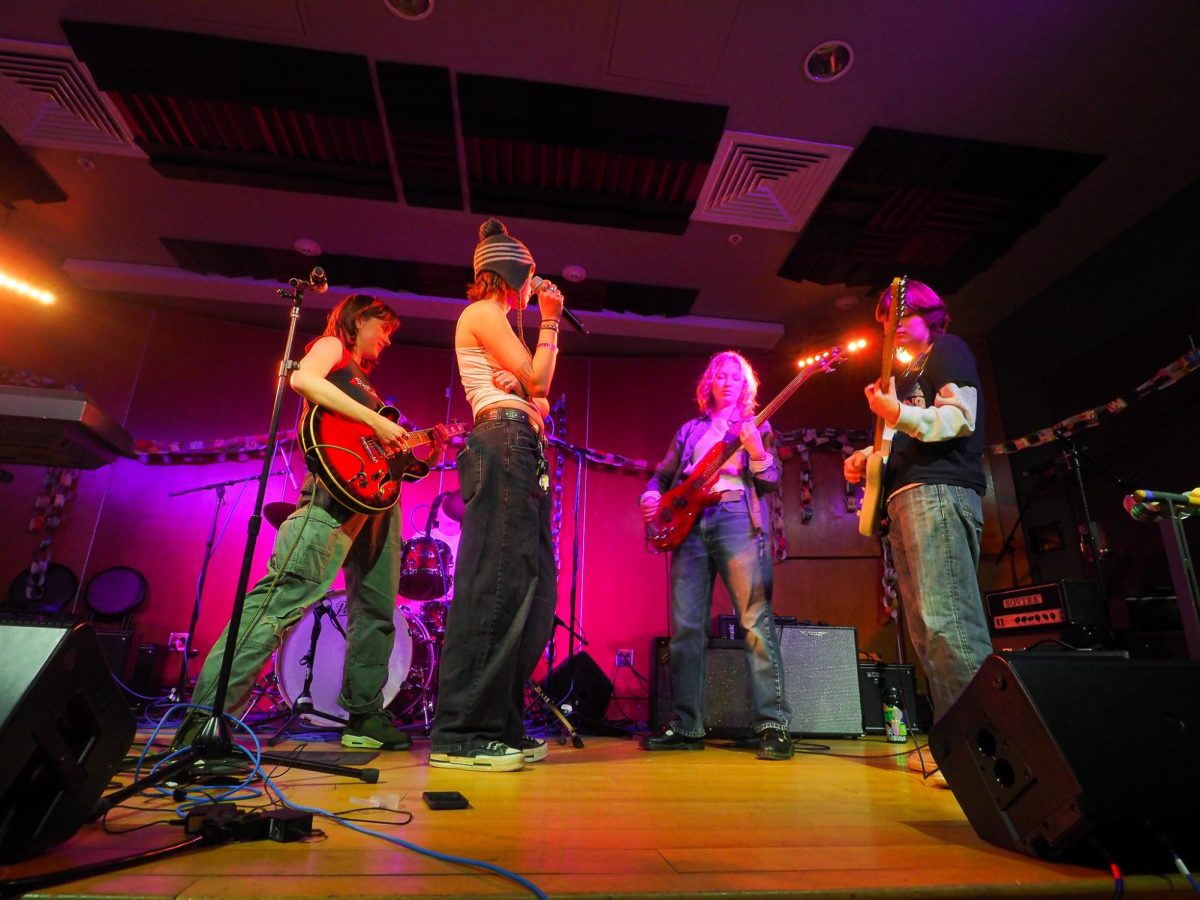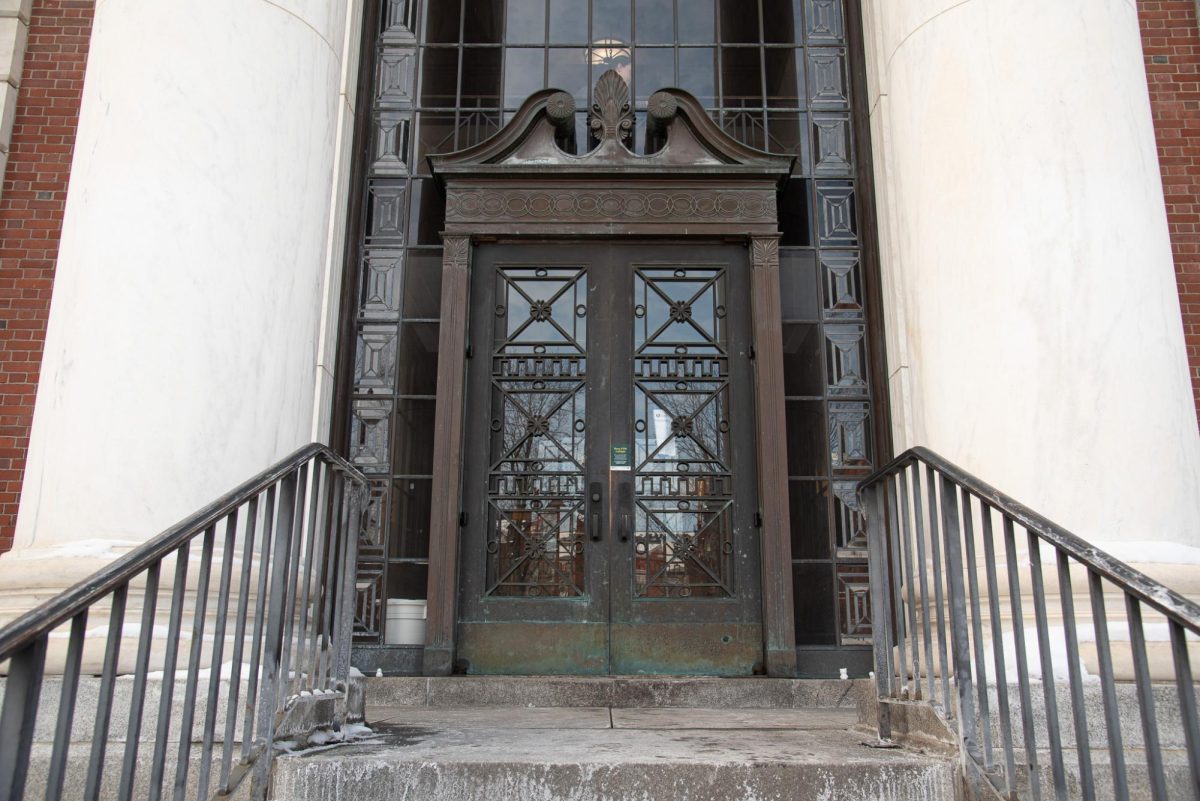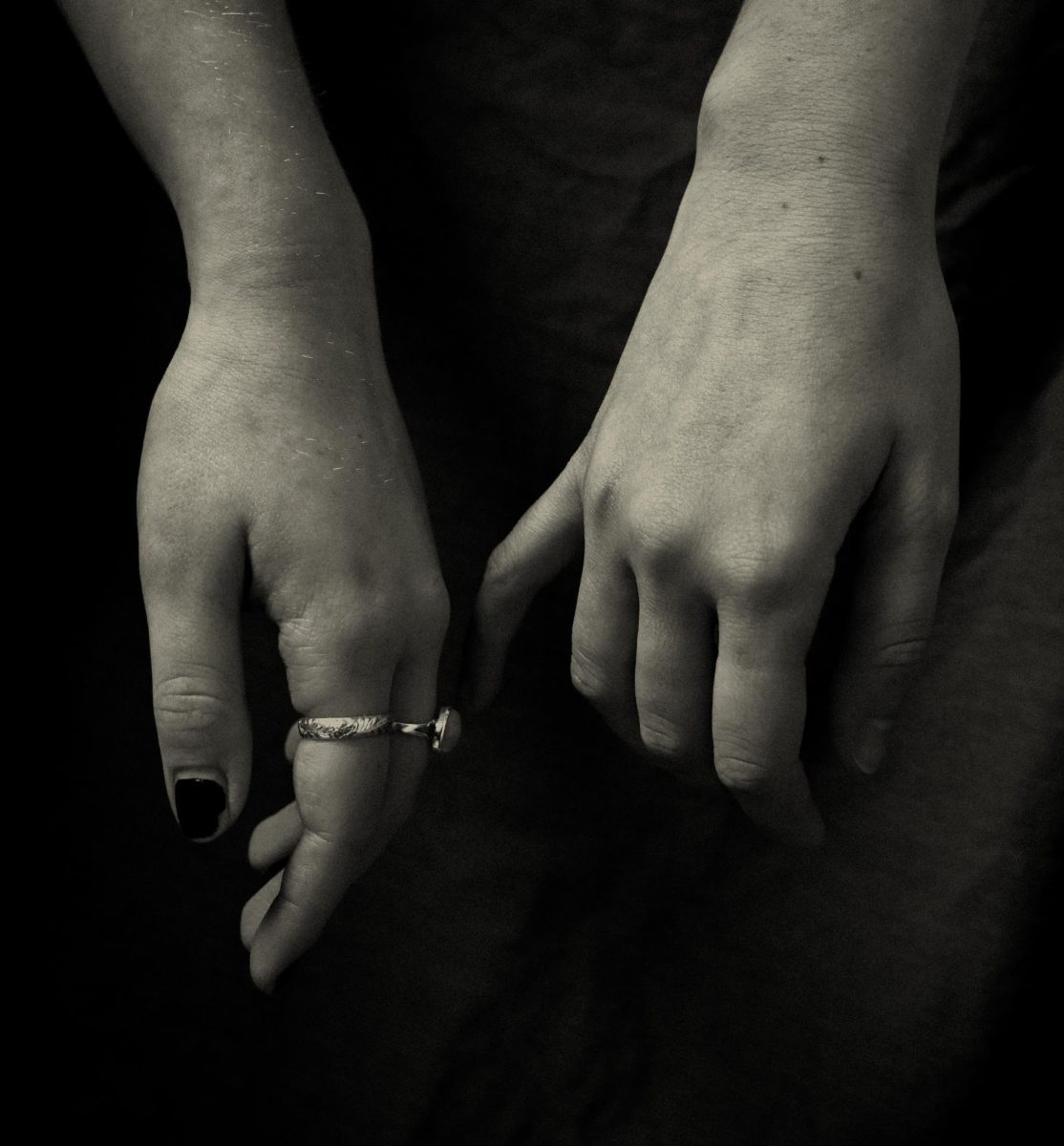About three months ago when I began a brief writing stint at Seven Days newspaper, I approached my editor with a story. It was to be one for the centuries, splattered with poverty, struggle, hard times, unthinkable coincidence, road-warrior blues, and most of all-heart. I gave my best sales pitch, came up short, and shelved the idea.
At the time, which was marking my one year anniversary as a regular for Halverson’s Thursday night blues, Joe Burrell was beginning to show signs of his age, leading his band while hooked up to a portable oxygen tank. And, in turn, “all us regulars” were feeling the heat that tends to come when a sage-like figure is getting ready to go. Burlington’s one and only link to a culture of musicianship that is steadily fading away, was as far as health goes, fading away himself, and I desperately wanted to open that treasure before it was too late. After the initial rejection and consequential shelving I went on with other things, and Joe was still remarkably playing his Thursday night gig.
I still went down to the shows, and the initial shock of seeing him on an oxygen tank wore down, and I began to hardly notice it. More than anything I reasoned that I was physically seeing him, and physically watching him play, and as long as “poppa” was around I figured everything was alright, and everything was in its place. It didn’t matter if his voice, or his sax waned, he was still there in real time. So after I took off from Burlington in December and headed back to Jersey for a month, it was time to come back, and I was ready to assume the Thursday night ritual where I had left off. On January 28th, I stepped out of my house to a brisk fifteen below night, with the crunch of early winter snow under my boots, when my roommate asked where I was going: “You going to Halverson’s?” “Yes.” “Someone just told me Big Joe is in the hospital, doesn’t look too good.” “Shit, really?” “Yeah, sorry man.” “F*ck.”
Millions of words in the English language to express grief or surprise or shock, and the best I could come up with was f*ck. But f*ck was more than okay because I knew things were looking down, and f*ck is as cold and harsh as reality gets. The following Monday I knew this story had to be written so I went into a mad panic trying to contact those that were close to Joe. I wasn’t sure about Joe’s condition exactly, if he himself was still talking, or accepting visitors, or if I would be overstepping my boundaries for requesting some sort of an interview. Two days later I was finally able to get in touch with his drummer Nick Aloi over the phone, and asked him if he could give me a word or two, or rather if there was any possible way I could visit Joe. He gravely replied, “Joe passed away at two o’clock this morning.” And I, staring at the aging sheet rock of my ceiling, said, “F*ck,” again.
**** Joe Burrell, born on February 9th, 1924, encompassed the natural soul of the blues and jazz in the way that most musicians spend their whole career looking for. If he was selling it in a bottle then everyone would have bought it ten thousand times over. Originally from a poor family in Detroit, coming up in the days of the Depression, Joe acquired his first sax on interest before he was ten years old. He learned how to play from his neighbor, and by the time he hit his freshman year of high school he put down his books in the name of jazz. He was fascinated with figures like Armstrong, and Ellington, and Count Basie-primarily the original “cats” of jazz stemming from the thirties to the early fifties. In 1943, Uncle Sam tapped him on the shoulder and put him in the service for three years. After the war he began to gig again, traveling about the country.
In 1960 he was playing a show in Ohio opening for B.B King, the man of all men. King liked him so much that he asked him to join his band, where he remained for the next two years. Big Joe also played with a group called The Red Tops. And, at a particular performance in New York City, he caught the eye of the man he grew up admiring-Count Basie. Basie was so impressed with Big Joe that for a time he put him up as a regular in his club located in the area.
Joe’s endeavors eventually took him to Canada and then to Burlington, where he spent the ladder part of his career playing with the Unknown Blues Band, and then Halverson’s-up, down, and sideways all in the name of music.
****
Thursday, February 3rd was the first gig played at Halverson’s since Joe’s death which had only come a day before. The grapevine trickled through my window that morning, and I was told that all the “good ol’ boys” from Joe’s twenty-five plus year career in Burlington were coming down to commemorate. I headed down to the show early, fantasizing about the stories I might hear of a bluesman that had paid his dues.
I imagined Stevie-Ray Vaughn finishing up a gig in a swelteringly hot Austin blues bar, sleeping on the bar table, and waking in the morning, dissolving cocaine in his glass of whiskey to get ready to play another grueling show in the same place just a few hours later-and I put Joe in his place. I thought about the legends of Charlie Parker, romanticizing his maniacally brilliant, tragic career, and again put Joe in his place. I wanted the stories of a man of the road who lived hard, and consequentially died young.
Only there was one problem, Joe died at the age of 81, a full life without a damn thing tragic about it. He didn’t do drugs, or drink in excess, or get banned from his own night club because he was too strung out on heroin. When Joe was faced with adversity, he simply played on. Of course he had his hard times, but he was able to do the unheard of, and find peace with them. So I poked around, had conversations here and there with people, some going way back with Joe and some not. But there was one man, a real dude, who “us regulars” like to call the Godfather-a short, weathered-by-age Italian man, who had the kick of an old Chevelle. We sat side by side at the bar stand, and he introduced himself as Zip Aloi, a name that is just too fitting. A drummer at the time for a band called the Golden Brass; he was the first musician Joe played with when he arrived to Burlington. Zip was full of eccentric smiles and back-slaps, just overwhelmingly happy to be talking about Joe. I asked him if he knew any good “stories” about Joe, the kind that I was after.
And he kindly shook his head and replied, “Sorry kid, none that I remember well enough to tell you.” He then went on like an excited little kid giving his “what I did over the summer” presentation. Zip couldn’t talk enough about Joe’s magnificent humility, and humble musicianship. He couldn’t say enough about Joe’s willingness to do anything for anyone, his willingness to always accept charity gigs, and most importantly, his love for kids, especially those who played music. Joe was more than
willing to take anyone under his wing, and have them play right next to him up on the band stand-and many, many did. All the information Zip was giving me was great, but I couldn’t help feeling slightly depressed. I thought I missed it all, thought I missed the chance to hear Joe’s words of wisdom, his war stories, and high times-I thought myself shit out of luck. I finished up with Zip, and breathed heavily into my pint glass. Then, as I looked up at the bar television I saw a commercial for some Louis Armstrong compilation that was featuring “What a Wonderful World,” a song Joe loved, and often played. I ordered another drink, and then it all finally dawned on me. Joe lived in what Dave Hickey refers to as “real time.” There didn’t have to be any tragic stories of substance abuse or some other rise and fall, because Joe was always there. Every Thursday he got up on the bandstand in his skipper’s hat and sang, and played the classic standards because he had the same understanding of life and song the same way Dave Hickey understood Chet Baker and his music-good songs will play themselves. And like Lou Reed said, “All you need to do is make it sing a little, make it human, and not f*ck it up.” Joe could have be-bopped his way from Burlington to California but that wasn’t where his soul was, and nor did it express how good he was.
He played those classic 30’s and 40’s standards not because they were standards, but because he had a genuine love for them, and passion is what makes music, and more importantly, life move. There wasn’t a thing that was abrasive about him, just smooth and sultry-always playing the notes in the key of life, never empty, and never in danger of implosion. He lived in the flow of rhyme, and never fell out a rhythm. Joe didn’t do drugs because he wasn’t trying to escape anything, his life was like a good song, and he knew that all he had to do was “make it sing a little,” simply live and play in “real time,” a feat almost unheard of. So I’ll end this story with Zip Aloi sitting alongside Big Joe in the hospital in the ladder part of the afternoon on Tuesday, February 1st. Just five weeks prior Joe was playing what would be his last show at Halverson’s, where the consensus was that Joe came out on fire, on top of the band right off the bat, and left them all catching their breath after the first number. Oxygen tank and all, he was singing and playing like a thirty year old hyped for his first gig at the Vanguard. After a few hours of visiting with Joe, Zip had to leave. Zip then got up from his chair, held Joe’s hand, kissed him on the forehead and said, “Oompad (uncle in Sicilian, often playfully called him this), we’ll see ya later baby,” and Joe gave a slight nonchalant nod in the way that only Joe could. By 11:30 pm that night the last visitors had left, and by two o’clock am, Joe, in his sleep, passed painlessly and gently into the quiet night, and the world said farewell to Captain Blue.






